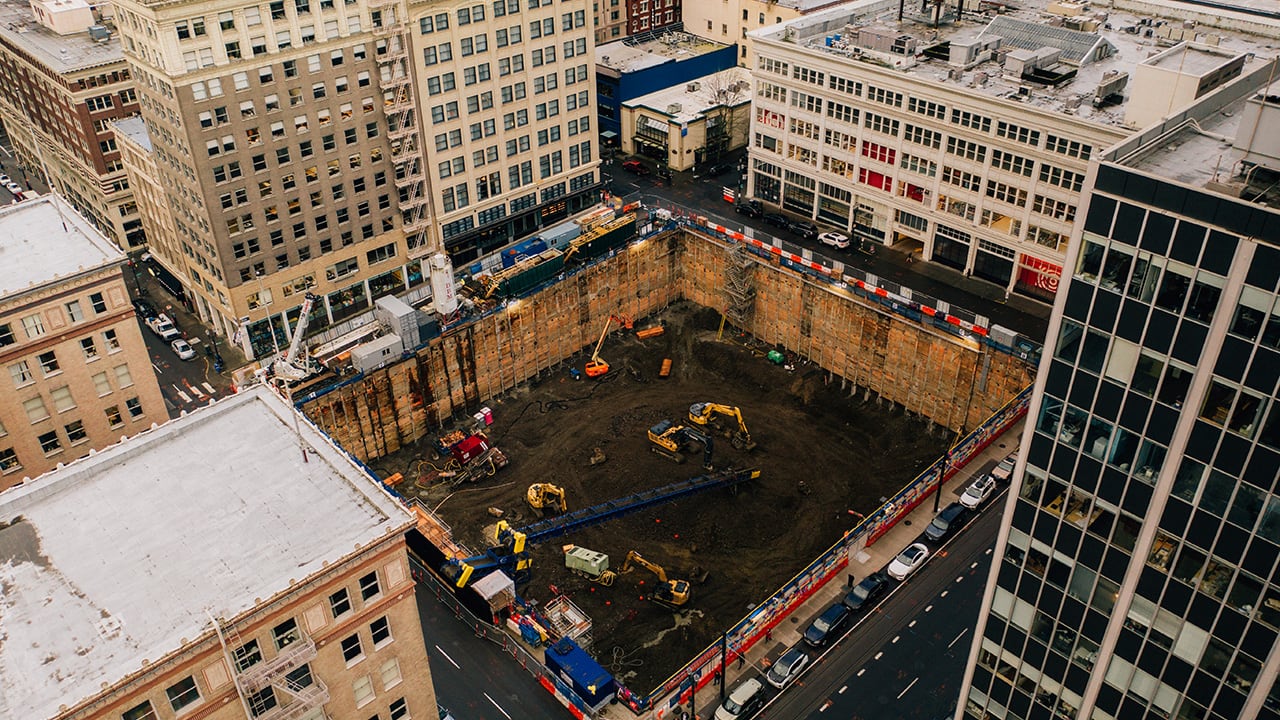At Jan. 5 budget meeting for the city's Bureau of Development Services, economists advising the bureau on the outlook for new construction presented dismal news: Portland has gone from one of the most desirable locations in the country just four years ago to near the bottom of an 80-city ranking.
That ranking was compiled by the Urban Land Institute in a report titled "Emerging Trends in Real Estate 2021." It shows that a survey of more than 1,300 lenders, investors, developers and other national real estate experts found Portland the third-most desirable real estate market in the nation in 2017. For 2021, it now ranks 66th of 80 cities on the list (see graph below).

In a Jan. 8 letter to the Portland City Council, eight local business organizations amplified that finding and the grim assessment of two economists who advise BDS. Tom Potiowsky, formerly the state economist and formerly chair of the economics department at Portland State University, said at a recent BDS meeting, according to the letter, that Portland was unique: He could not think of another example of "an area that has so quickly fallen into disfavor."
A second economist, Mike Wilkerson, director of analytics at the consulting firm ECONorthwest, echoed Potiowsky, saying that investors' lack of confidence will stunt the city's rebound and predicted Portland "will have an impediment to growth until that's resolved."
That plunge in confidence appears to stem from factors that include widely broadcast images of protests and nearby wildfires. It may be exacerbated by the documented flight of businesses from the city's core and factors such as the cost of property insurance rising 30% to 50% amid repeated vandalism.
But it also fits into a debate over the future of the Bureau of Development Services.
Business groups have implored the City Council to resist cutting the budget of BDS, which depends on new permit fees for its funding. The bureau is looking at a 17% budget cut next year, which would mean eliminating 60 of its 358 employees.
Business groups say that's mistake. Their argument: If investors consider coming back to Portland, a bare-bones permitting agency will hamstring new development.
"Significant BDS layoffs threaten to touch off a downward spiral, reducing service levels and increasing permitting timelines, both of which create uncertainty that can hamper recovery in the housing and office development and construction industries," the letter says. "Slashing BDS's workforce and hindering permit processing will only reinforce investors' concerns about the Portland market."
"Everyone agrees Portland is facing challenges—as are many cities around the nation," says Mayor Ted Wheeler's spokesman, Jim Middaugh. "That said, Portland remains a great place to live, work, and invest."
Middaugh added that Wheeler and BDS Commissioner Dan Ryan acknowledge developers' concerns.
"We must keep BDS strong to ensure continuity of permitting services through the market cycles that will roll through our economy during the next few years," Middaugh says. "The mayor looks forward to partnering with Commissioner Ryan and BDS director Rebecca Esau as they develop and propose citywide solutions."
Correction: This story originally said Tom Potiowsky is the chairman of the economics department at Portland State. He no longer holds that position. WW regrets the error.

